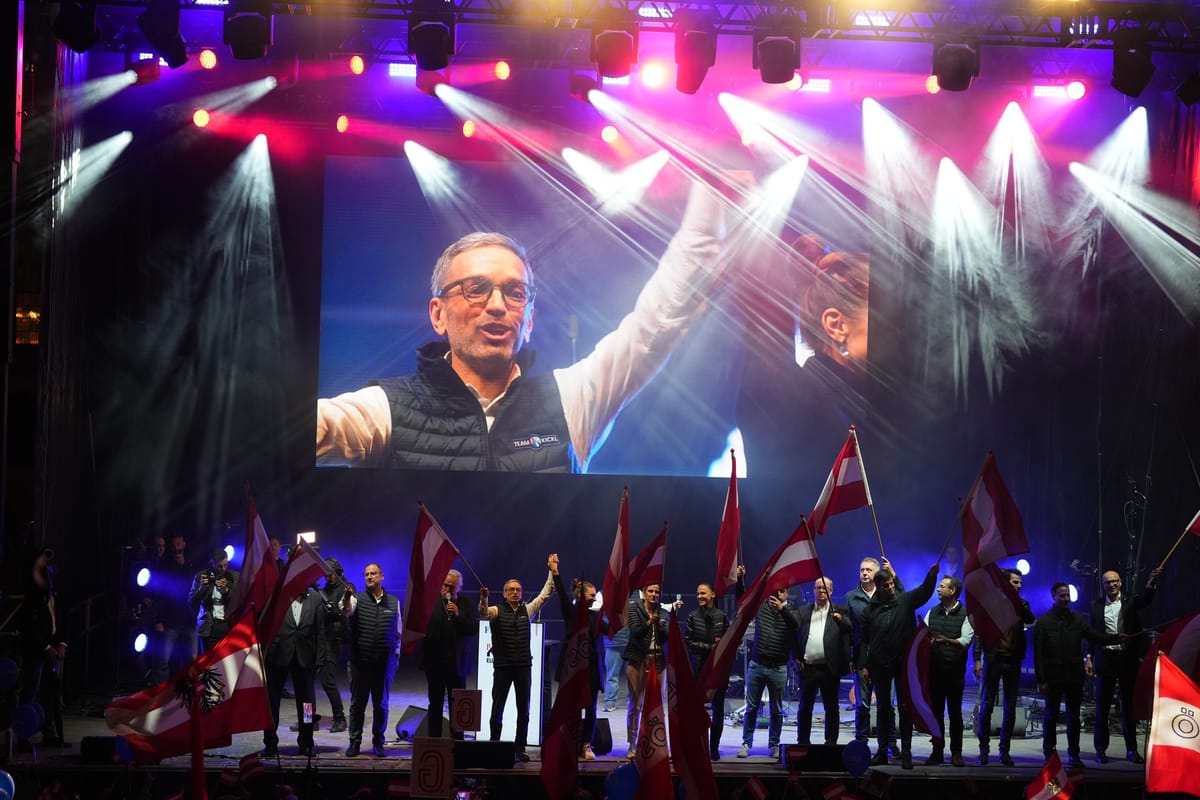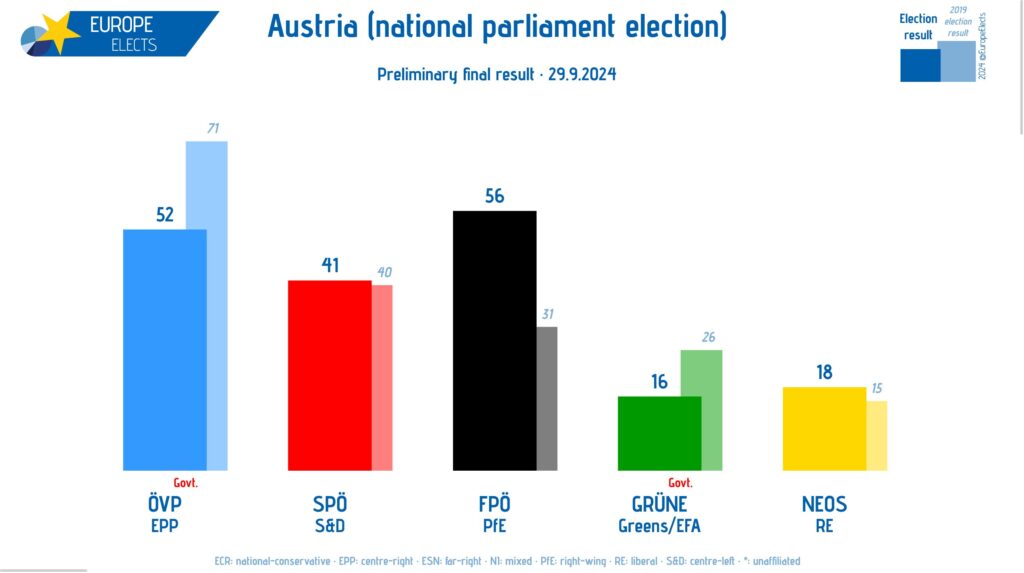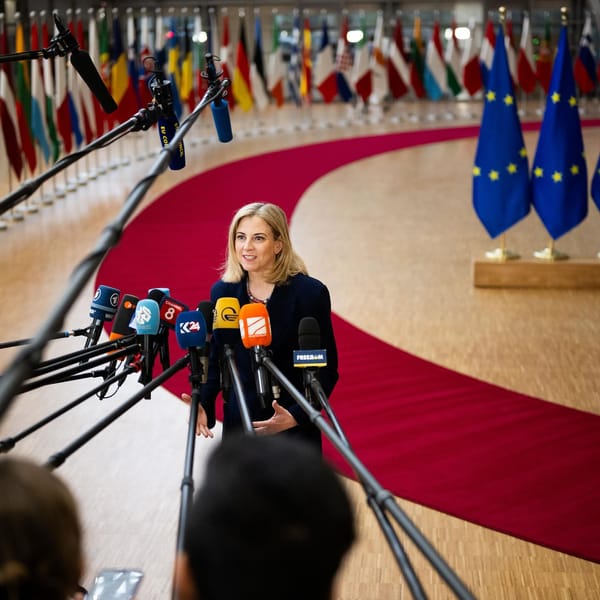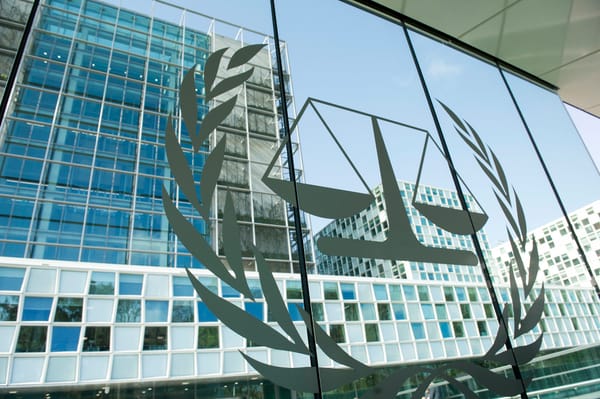
Austrian far-right FPO party wins election
Austria’s far-right Freedom Party (FPO) has won a landmark victory, claiming the largest share of votes and ending 20 years of dominance by the centre-right People’s Party (OVP). Led by Herbert Kickl, the FPO secured 28.8% (which translated to 56 seats, up 25), pipping Austrian Chancellor Karl Nehammer’s OVP on 26.3% (52 seats, down 19).
Facing the collapse of Austria’s long-standing centrist political consensus, Nehammer called the loss “bitter”. The centre-left Social Democrats (SPO) garnered an all-time low of 21.1% (41 seats, up 1), while the coalition Greens were pushed to 5th place on 8.3% (16 seats, down 10), just behind the centrist NEOs (18 seats, up 3).

Despite recent floods in Austria, issues such as migration, asylum, and the cost of living dominated the campaign, allowing the FPO to channel voter discontent. The FPO’s surge reflects a backlash against immigration, inflation, and the economic fallout of the pandemic, according to UK daily The Guardian.
Kickl channels ‘people’s chancellor’
Kickl’s campaign, invoking Austria’s darker past, focused on anti-immigration rhetoric, Islamophobia, and opposition to EU sanctions on Russia. His controversial use of the title “people’s chancellor” once associated with the German Nazi leader Adolf Hitler, sparked outrage but also resonated with a significant proportion of voters.
The FPO leader’s call for “remigration” – forcibly deporting immigrants judged unassimilated – was cheered by his supporters but shocked migrant communities. His attacks on climate activists, the EU, “elitist” politicians, and progressive education also garnered votes. He has openly praised Hungarian Prime Minister Viktor Orban, who has made anti-migration rhetoric central to his policial messaging for a decade. Germany’s far-right AfD and Orban’s Fidesz congratulated Kickl.
The OVP has also leaned into anti-migrant rhetoric. “The government has drastically reduced asylum applications,” Nehammer said on Thursday, 26 September, adding that “We need more: asylum procedures in third countries before asylum seekers cross numerous European countries. He also said migrants should only gain full access to social welfare after five years in Austria.
Coalition talks likely to be protracted
Forming a government without a majority will be complex: the OVP, which has twice ruled in coalition with the FPO, said while talks are possible, Kickl as chancellor remains a non-starter. Local observers predict weeks of negotiations, with the FPO either brokering an uneasy alliance with the OVP or cobbling together a multi-party coalition.
Support for the OVP, in power for most of the past two decades, fell by 11 percentage points as Nehammer’s government struggled with inflation and waning public trust. The Social Democrats continued their collapse, while the Greens, once buoyed by climate activism, could not turn recent disasters into political momentum. Economic anxieties, not environmental concerns, defined this election.
The FPO, now a dominant force in a key EU member state, is likely to intensify pressure on Brussels to address rising nationalist sentiment across the bloc. Whether Kickl’s vision for Austria becomes reality depends on his ability to secure coalition partners.





